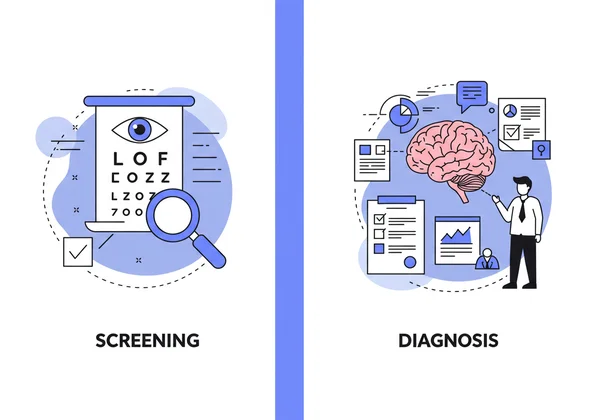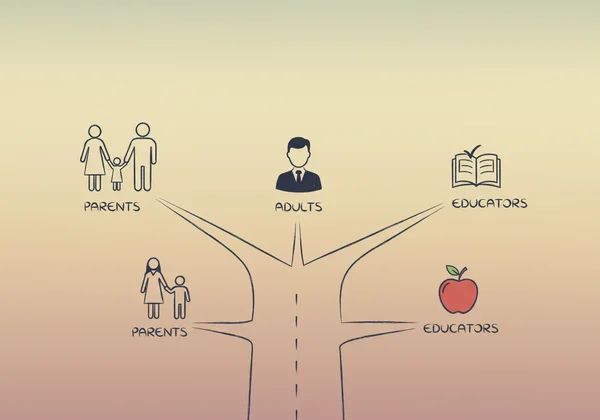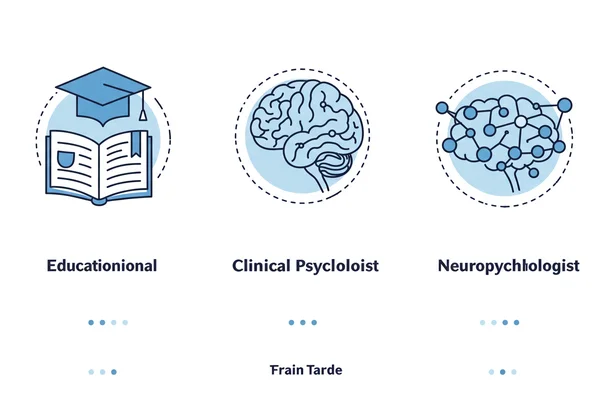After Your Dyscalculia Test: Understand Results & Next Steps
September 29, 2025 | By Aisha Bennett
Congratulations on taking a proactive step toward understanding math-related challenges! Completing a dyscalculia test is a significant move, whether for yourself, your child, or a student. It’s a moment of empowerment, but it can also bring up a big question: So, what do these results really mean? This guide is here to walk you through interpreting your screening results and provide clear, actionable next steps on your journey.
Understanding your unique cognitive profile is the key to unlocking new strategies for success. This article will help you navigate the path from results to resources, turning insight into action. Let’s decode your results and explore the supportive options available.

Understanding Your Dyscalculia Screening Results
The results from our free screening are designed to give you a preliminary indication of the likelihood of dyscalculia traits. They are a starting point, not a final destination. Think of them as a signpost pointing you in the right direction for further exploration.
What "Low Probability" Means
A "Low Probability" result suggests that the responses provided do not strongly align with the common patterns seen in individuals with dyscalculia. While this can be reassuring, it doesn't dismiss any real struggles you or your child may be experiencing. Math difficulties can stem from various sources, including math anxiety, gaps in education, or other learning differences. This result is an opportunity to explore those other possibilities.
What "Medium Probability" Indicates
Receiving a "Medium Probability" result means that some of your answers are consistent with the characteristics of dyscalculia, but not consistently across all areas. This could indicate a specific area of difficulty, such as trouble with number sense or mathematical reasoning, or it might reflect co-occurring challenges like ADHD or anxiety that impact math performance. This is a clear signal that further investigation is warranted.
Interpreting "High Probability" Findings
A "High Probability" result indicates that your responses show a strong correlation with the key indicators of dyscalculia. This is not a diagnosis, but it is a powerful piece of information. For many, this result is a moment of validation—an acknowledgment that the lifelong struggles with numbers are not due to a lack of effort. It strongly suggests that seeking a formal assessment and specialized support would be a beneficial next step.
The Value of Your AI Personalized Analysis Report
Beyond the initial probability score, our optional AI-driven report offers a much deeper dive into your cognitive profile. This isn't just a score; it's a personalized map. The report analyzes your specific response patterns to highlight potential strengths and challenges, offering tailored strategies and tools that align with your unique way of thinking. It’s the difference between knowing you’re heading north and having a detailed GPS to guide your journey. You can learn more when you take our free test.
Screening vs. Diagnosis: Setting Clear Expectations
It is critically important to understand the difference between a screening and a diagnosis. This distinction is key to using your results responsibly and effectively. Our goal is to empower you with information, and that begins with clarity.

Why Our Test is a Screening Tool, Not a Diagnosis
Think of our online test like a school vision screening. The nurse can identify students who have trouble reading the eye chart, flagging them for potential vision issues. However, only an optometrist can perform a comprehensive exam to diagnose the specific problem (like nearsightedness or astigmatism) and prescribe the correct glasses.
Similarly, our dyscalculia screening is an expertly designed tool that identifies signs consistent with dyscalculia. It’s a fast, accessible, and free way to raise a flag. A formal diagnosis, however, is a much more in-depth process conducted by a qualified professional.
When to Consider a Formal Dyscalculia Diagnosis
You should consider seeking a formal diagnosis if:
- Screening results indicate a medium or high probability.
- Math difficulties are persistently causing significant stress or hindering academic, professional, or daily life.
- You need official documentation to request classroom accommodations or workplace support.
- You want a comprehensive understanding of the specific cognitive processes affecting your math skills.
Navigating Your Next Steps After Dyscalculia Screening
Your screening results are a catalyst for action. What you do next depends on who you are—a parent, an adult on a personal journey, or an educator. Here are targeted next steps for each.

For Parents: Talking to Your Child's School and Professionals
Your screening results are a valuable tool for starting a conversation. Schedule a meeting with your child's teacher, school counselor, or special education coordinator. Bring the results with you and use them as a basis to discuss your observations and concerns. Ask about the possibility of creating a learning support plan or an Individualized Education Program (IEP) that includes specific, targeted math interventions.
For Adults: Exploring Support and Self-Advocacy
For many adults, a screening result is the first step toward self-understanding and acceptance. Use this insight to explore strategies that work for you. This could mean using technology (like calculator and budget apps) more freely, breaking down tasks with numbers into smaller steps, or being open about your challenges in the workplace. Developing self-advocacy skills is empowering and can lead to helpful accommodations. To start your journey, try our free tool.
For Educators: Utilizing Screening Insights in the Classroom
As an educator, you can use our free screening tool to better understand your students' struggles. If a student's results suggest a high probability of dyscalculia, it can inform your teaching approach. You might incorporate more hands-on learning tools, use graph paper to align numbers, or provide untimed practice. It’s a step toward creating a more inclusive and supportive classroom environment for all learners.
Seeking a Formal Dyscalculia Diagnosis: The Process
If you've decided to pursue a formal assessment, knowing what to expect can make the process feel less intimidating. This is how you can find answers regarding how to get dyscalculia diagnosis.
Who Can Diagnose Dyscalculia? Identifying the Right Professionals
Dyscalculia is typically diagnosed by specialists with training in learning disorders. Look for these professionals:
-
Educational Psychologist: They specialize in understanding how people learn and can conduct comprehensive psycho-educational evaluations.
-
Clinical Psychologist: Some have expertise in learning disorders.
-
Neuropsychologist: These experts study brain-behavior relationships and can provide deep insights into cognitive functions.

Preparing for a Comprehensive Assessment
To get the most out of the assessment, gather relevant documents beforehand. This might include school report cards, notes from teachers, examples of math work, and your results from the online dyscalculia screening. Write down your specific concerns and examples of how math challenges impact daily life. This information provides valuable context for the evaluator.
What to Expect During a Professional Evaluation
A neuropsychological evaluation is a series of tests and interviews. It’s not just about math problems. The professional will assess a range of cognitive skills, including memory, visual-spatial processing, and executive function, to build a complete picture of one's learning profile. The goal is to identify not just the challenges, but also the strengths that can be leveraged for support.
Your Empowered Journey Continues
Receiving your screening results is not an end point; it's the beginning of an informed and empowered journey. Whether it confirms a long-held suspicion or opens up a new avenue of inquiry, you now have valuable information to guide your next steps. Remember, understanding a challenge is the first step to overcoming it.
Dyscalculia Test is here to be your partner on this path. We encourage you to explore our resources, learn more about effective strategies, and continue advocating for yourself or those you care for. The journey to mathematical confidence starts with a single step, and you’ve already taken it. Discover your results and continue your exploration today.

Frequently Asked Questions About Dyscalculia Screening & Diagnosis
What's the difference between a dyscalculia screening and a formal diagnosis? A screening, like our online tool, is a brief assessment that identifies potential signs or risks of dyscalculia. A formal diagnosis is a comprehensive evaluation conducted by a qualified professional (like an educational psychologist) to confirm the condition and detail a specific cognitive profile.
Who can officially diagnose dyscalculia? Qualified professionals such as educational psychologists, clinical psychologists, and neuropsychologists can perform the in-depth assessments required to provide an official diagnosis of dyscalculia or other specific learning disabilities.
Can adults get help for dyscalculia after a screening? Absolutely. After a screening, adults can seek a formal diagnosis to access workplace accommodations, or they can immediately begin using assistive technologies and strategies to manage challenges in their daily and professional lives. A screening can be the first step to self-advocacy.
What should I tell my child's teacher after a screening? Share the screening results as a starting point for a collaborative conversation. Frame it as, "We used a screening tool that suggests my child may have challenges consistent with dyscalculia. I'd like to partner with you to observe their learning and discuss potential support strategies."
Where can I find more resources on dyscalculia? Our website is a great place to start! We offer a wealth of articles and information designed to support parents, adults, and educators. Begin by taking our free dyscalculia test to receive a personalized report that can guide you to the most relevant resources.